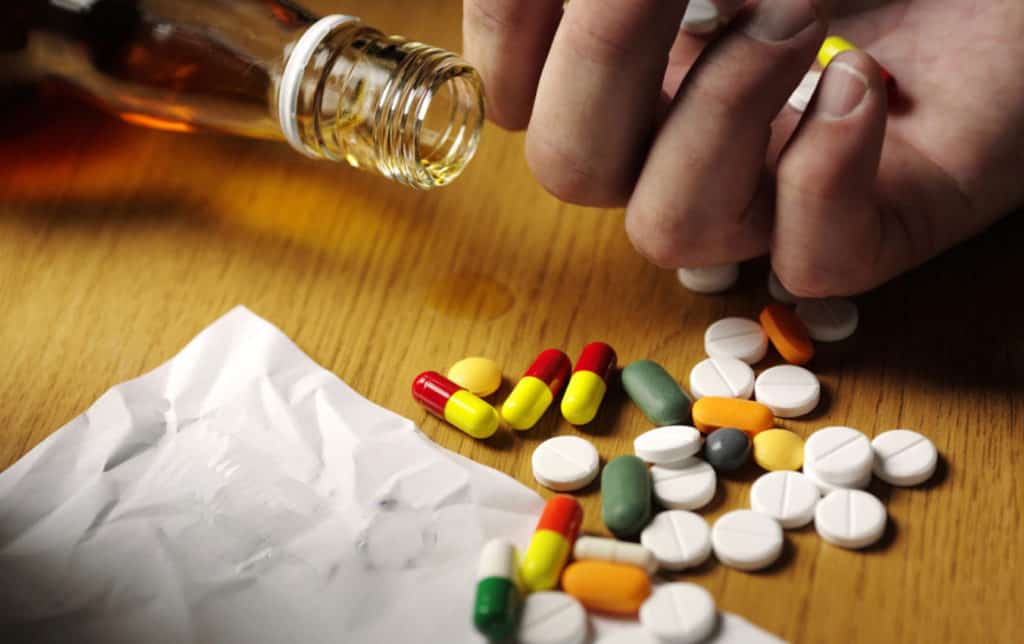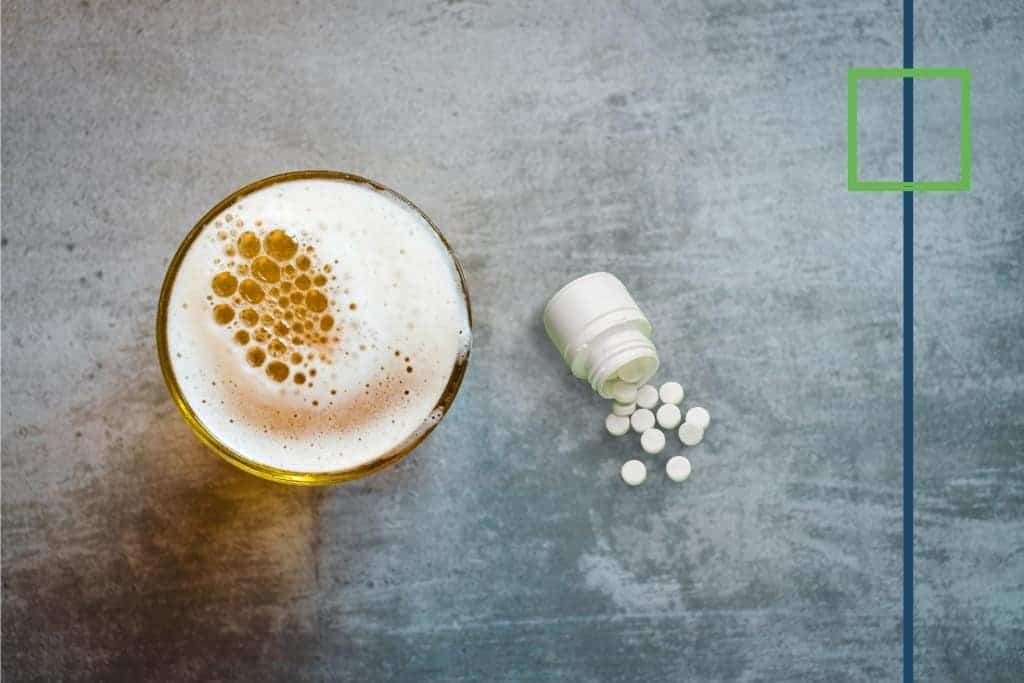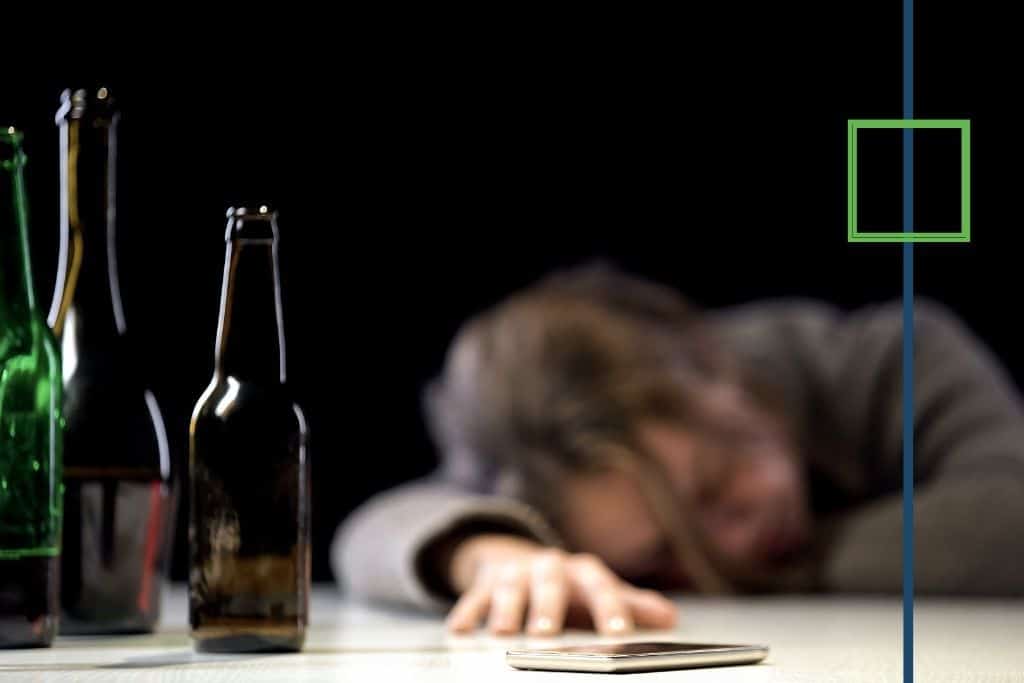What Is Ketamine? Mixing Alcohol and Ketamine
Ketamine is a dissociative anesthetic agent used in medical procedures as well as for the treatment of severe acute and chronic pain. Ketamine was first synthesized in the 1960s and began being used in medical settings as a dissociative anesthetic agent shortly thereafter. The Food and Drug Administration (FDA) approved it in 1970, and it continues to be used as an anesthetic induction agent and procedural sedative for children and adults and, even more commonly, in veterinary medicine.
Ketamine’s utility, however, has expanded beyond its FDA-approved use as an anesthetic. It is sometimes prescribed for moderate to severe acute and chronic pain, and it is increasingly used as an antidepressant in patients who have not responded to other forms of treatment.
While pharmaceutical ketamine is administered as an injectable solution, illicitly produced ketamine is often encountered as a powder or a liquid. In recreational use, the powder is cut into lines and snorted or smoked—either alone or in combination with marijuana or tobacco. Liquid ketamine may be injected or mixed into drinks. Ketamine purchased illegally is often cut with other drugs, including methamphetamine, amphetamine, Ecstasy (MDMA), and cocaine.

Depending on the specific route of ingestion, the effects of the drug may be felt within a couple of minutes. The user may have distortions in sight or sound, and feel disconnected from reality. Hallucinations are common under the influence of the drug and may last 30 minutes to 60 minutes. Users may also feel detached from their body, an experience referred to as being in the “k-hole.”
Other effects include agitation, depression, trouble thinking, amnesia, and loss of consciousness. Users may become unresponsive to outside stimuli and experience involuntary rapid eye movements, dilated pupils, salivation, tearing, and muscle stiffness.

Get Your Life Back
Find Hope & Recovery. Get Safe Comfortable Detox, Addiction Rehab & Dual Diagnosis High-Quality Care.
Hotline(844) 597-1011How Does Ketamine Work?
Ketamine binds to and blocks the activation of a special brain protein known as the N-methyl-D-aspartate (NMDA) receptor. Normally, the NMDA receptor interacts with and is activated by glutamate—an excitatory neurotransmitter in the brain that plays a role in learning and memory. Blocking glutamatergic activation of the NMDA receptor can affect attention, learning, and memory, and ketamine’s antagonizing effects on this receptor are thought to also play a role in its anesthetic and pain-relieving properties.
Ketamine Side Effects
Get emergency medical help if you have signs of an allergic reaction: hives; difficult breathing; swelling of your face, lips, tongue, or throat. Tell your caregivers if you have hallucinations or unusual thoughts while waking up from anesthesia.
Call your doctor at once if you have:
- Painful or difficult urination, increased urination, loss of bladder control, blood in your urine
- A light-headed feeling, like you, might pass out
- Slow heart rate, weak or shallow breathing
- Jerky muscle movements that may look like convulsions
Common side effects may include:
- confusion
- dream-like feeling
How Does Alcohol Work?
Roughly 20% of the alcohol consumed in a drink is absorbed by the stomach, with the remaining 80% absorbed by the small intestine. It passes from the digestive tract into the bloodstream, where it is transported to all parts of the body, including the brain.
Several neurochemical processes are influenced by the presence of alcohol. On a broad level, these acute, alcohol-related brain changes include a heightened effect of inhibitory neurotransmitters and a decreased effect of excitatory neurotransmitters. Among its diverse group of physiological targets, alcohol affects the activity of both inhibitory (GABA) and excitatory (glutamate) neurotransmitters.
Specifically, it binds to GABA receptors and amplifies the inhibitory signaling that results when GABA binds to them—resulting in a net reduction of certain types of neural activity. Conversely, alcohol also reduces glutamate’s excitatory action on NMDA receptors (the same receptors that ketamine inhibits).

Though the precise mechanism isn’t fully understood, alcohol use is also accompanied by an increase in dopamine activity. Dopamine is commonly thought of as the brain’s “pleasure chemical,” though more accurately, its actions are thought to reinforce certain behaviors (e.g., drinking) that themselves are associated with pleasurable effects.
Get Help. Get Better. Get Your Life Back.
Searching for Accredited Drug and Alcohol Rehab Centers Near You?
Even if you have failed previously and relapsed, or are in the middle of a difficult crisis, we stand ready to support you. Our trusted behavioral health specialists will not give up on you. When you feel ready or just want someone to speak to about therapy alternatives to change your life call us. Even if we cannot assist you, we will lead you to wherever you can get support. There is no obligation. Call our hotline today.
(844) 597-1011Physical Effects of Alcohol on the Body
Here’s a breakdown of the physical effects of alcohol on your internal organs and body processes.
Digestive and endocrine glands
Drinking too much alcohol may cause inflammation of the pancreas, resulting in a condition called pancreatitis. Pancreatitis can activate the release of pancreatic digestive enzymes and cause abdominal pain. Pancreatitis can become a long-term condition and cause serious complications.
Inflammatory damage
Your liver helps break down and remove toxins and harmful substances (including alcohol) from your body. Long-term alcohol use interferes with this process. It also increases your risk for alcohol-related liver disease and chronic liver inflammation:
- Alcohol-related liver disease is a potentially life-threatening condition that leads to toxins and waste buildup in your body.
- Chronic liver inflammation can cause scarring or alcoholic cirrhosis. When scar tissue forms, it may permanently damage your liver.
Sugar levels
The pancreas helps regulate how your body uses insulin and responds to glucose. If your pancreas and liver don’t function properly due to pancreatitis or liver disease, you could experience low blood sugar or hypoglycemia. A damaged pancreas can also prevent your body from producing enough insulin to use sugar. This can lead to hyperglycemia or too much sugar in the blood.
If your body can’t manage and balance your blood sugar levels, you may experience greater complications and side effects related to diabetes. Experts recommend avoiding excessive amounts of alcohol if you have diabetes or hypoglycemia.
Central nervous system
One major way to recognize alcohol’s impact on your body? Understanding how it affects your central nervous system. Slurred speech, a key sign of intoxication, happens because alcohol reduces communication between your brain and body. This makes speech and coordination — think reaction time and balance — more difficult. That’s one major reason why you should never drive after drinking. Over time, alcohol can cause damage to your central nervous system, you might notice numbness and tingling in your feet and hands.
First-class Facilities & Amenities
World-class High-Quality Addiction & Mental Health Rehabilitation Treatment
Rehab Centers TourRenowned Addiction Centers. Serene Private Facilities. Inpatient rehab programs vary.
Addiction Helpline(844) 597-1011Proven recovery success experience, backed by a Team w/ History of:
15+
Years of Unified Experience
100s
5-Star Reviews Across Our Centers
10K
Recovery Success Stories Across Our Network
- Low Patient to Therapist Ratio
- Onsite Medical Detox Center
- Comprehensive Dual-Diagnosis Treatment
- Complimentary Family & Alumni Programs
- Coaching, Recovery & Personal Development Events
Short-term physical effects of alcohol
Temporary physical effects of alcohol you might notice while drinking (or shortly after) include:
- Feelings of relaxation or drowsiness
- A sense of euphoria or giddiness
- Changes in mood
- Lowered inhibitions
- Impulsive behavior
- Slowed or slurred speech
- Nausea and vomiting
- Diarrhea
- Head pain
- Changes in hearing, vision, and perception
- Loss of coordination
- Trouble focusing or making decisions
- Loss of consciousness or gaps in memory (often called alcohol blackout)
Some of these physical effects of alcohol, like a relaxed mood or lowered inhibitions, might show up quickly, after just one drink. Others, like loss of consciousness or slurred speech, may develop after a few drinks. Dehydration-related effects, like nausea, headache, and dizziness, might not appear for a few hours, and they can also depend on what you drink, how much, and if you also drink water.
These effects might not last very long, but that doesn’t make them insignificant. Impulsiveness, loss of coordination, and mood changes can affect your judgment and behavior and contribute to more far-reaching effects, including accidents, injuries, and decisions you later regret.
Long-term physical effects of alcohol
Alcohol use can also lead to more lasting concerns that extend beyond your mood and health. Some long-term physical effects of alcohol frequently drinking include:
- Persistent changes in mood, including anxiety and irritability
- Insomnia and other sleep concerns
- A weakened immune system, meaning you might get sick more often
- Changes in libido and sexual function
- Changes in appetite and weight
- Problems with memory and concentration
- Difficulty focusing on tasks
- Increased tension and conflict in romantic and family relationships
World-class, Accredited, 5-Star Reviewed, Effective Addiction & Mental Health Programs. Complete Behavioral Health Inpatient Rehab, Detox plus Co-occuring Disorders Therapy.
CALL(844) 597-1011End the Addiction Pain. End the Emotional Rollercoaster. Get Your Life Back. Start Drug, Alcohol & Dual Diagnosis Mental Health Treatment Now. Get Free No-obligation Guidance by Substance Abuse Specialists Who Understand Addiction & Mental Health Recovery & Know How to Help.
Can You Mix Alcohol and Ketamine?
Combining alcohol and ketamine can lead to negative reactions, some of which can be life-threatening. Users who mix alcohol and ketamine may be at increased risk of urinary tract issues, memory loss, slowed breathing, coma, and even death. Symptoms of an overdose on alcohol and ketamine can include unconsciousness, slowed heart rate, impaired motor function, vomiting, and clammy skin, and requires immediate medical attention.
Effects of Mixing Alcohol and Ketamine
There is a real danger in mixing alcohol and ketamine. Because alcohol and ketamine affect different neurotransmitter systems in a way that ultimately results in increased inhibitory brain signaling, some of the physiological effects of combining alcohol and ketamine are synergized (i.e., similar effects are amplified), by the simultaneous use of both substances. Studies have found that ketamine produces subjective alcohol-like effects in users, which further suggests that combining the substances could result in over-intoxication.
Using ketamine with alcohol increases the risk of memory loss, slowed breathing, coma, and death. Users may be unaware of how much the substances are affecting them due to combined intoxication. In examining the death of a British teenager, the pathologist in the case stated that the combination Oof alcohol and ketamine was a contributing factor in her death: “In combination, she caused more damage than if she had taken ketamine alone.”

In the case of overdose deaths from recreational use of ketamine, forensic investigators have found concentrations of ketamine in the blood ranging from 0.1 to 7.0 mg/liter when used in conjunction with other drugs, including alcohol. Of 23 deaths in the United Kingdom between 1993 and 2006 in which ketamine was identified in the user’s system, only 4 of those involved only ketamine; the other 19 were attributed to a mixing of substances. A study in New York City found similar rates, with 12 out of 15 deaths attributed to polydrug overdoses involving ketamine.
Finally, ketamine use may increase the risk of certain urinary tract issues, including irreversible urologic damage. The Global Drug Survey found that people who drank alcohol while they used ketamine were much more likely to report problems such as increased urinary frequency, pain with urination, lower abdominal pain, and blood in their urine. Avoiding the combination of alcohol and ketamine reduces the risk of bladder and gastrointestinal problems.
Reclaim Your Life From Mixing Alcohol and Ketamine
Substance use disorder can lead to serious physical effects of alcohol. We Level Up rehab treatment & detox center can provide you, or someone you love, the tools to recover from alcoholism or ketamine addiction with professional and safe treatment. Feel free to call us to speak with one of our counselors. We can inform you about this condition by giving you relevant information. Our specialists know what you are going through. Please know that each call is private and confidential.
Experience Transformative Recovery at We Level Up Treatment Centers.
See our authentic success stories. Get inspired. Get the help you deserve.



Start a New Life
Begin with a free call to an addiction & behavioral health treatment advisor. Learn more about our dual-diagnosis programs. The We Level Up Treatment Center Network delivers recovery programs that vary by each treatment facility. Call to learn more.
- Personalized Care
- Caring Accountable Staff
- World-class Amenities
- Licensed & Accredited
- Renowned w/ 100s 5-Star Reviews
We’ll Call You